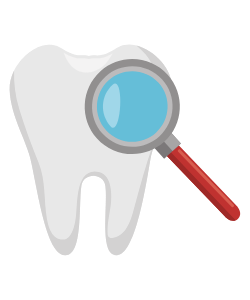Keratin, the material your nails are composed of, is much weaker than tooth enamel. That's why nailbiters can chew at their nails over and over. Biting your nails can relieve stress and help to strengthen your immune system by exposing you to germs. However, nailbiting doesn't benefit your teeth in any way. In fact, if you keep biting your nails, you could damage your teeth.
Although damage from nailbiting won't happen instantly, eventually, you may need dental work to repair the cumulative damage.
Orthodontic Treatment
Did you know that your teeth move very slowly throughout your lifetime? That is, they drift forward towards the front of your mouth via a process that dentists refer to as mesial drift. This is why gaps between the two front teeth of teenagers often eventually close. Your teeth are under constant pressure from forces such as chewing and grinding, and so your bite changes naturally over time.
However, when you introduce an unnatural force, such as nailbiting, your nailbiting teeth may move in awkward directions. For instance, you may cause one of your incisors to eventually become angled sideways or outwards. This will make eating and speaking difficult in the future. And unfortunately, the only way to correct this movement is with braces.
Composite Bonding
Biting your nails could also cause micro fractures in your enamel. While at first, you might not notice these tiny areas of damage, in time, those fractures could cause your teeth to chip and even crack. If you lose some of the enamel from a tooth, that tooth is more susceptible to tooth decay than before. As such, you need to repair damaged enamel before tooth decay sets in.
When the damage is minor, composite bonding, which employs the same material as that used for white fillings, can help seal it. However, a better approach would be to stop biting your nails before damage occurs.
Dental Crowns
If the damage is so severe that your tooth cracks or breaks while you are biting your nails, then composite bonding won't help. Since a large portion of your tooth is gone, you need something that will provide more stability than composite bonding. Dental crowns are ideal for badly damaged teeth. However, your dentist will need to remove some of the remaining enamel to place the crown.
Once done, however, you will have a porcelain layer protecting what is left of the tooth underneath.
Although these approaches are effective, the most effective approach is to deal with your nailbiting before it can damage your teeth. Talk to your dentist today to get more advice.
Share
